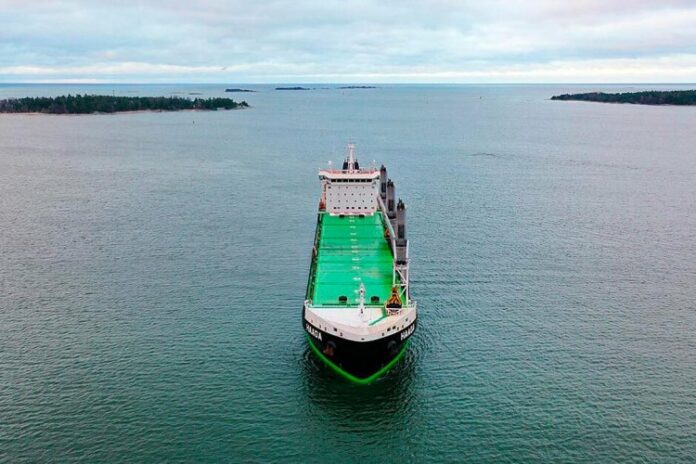The ISCC PLUS certified marine fuel enables up to 80% reduced greenhouse gas emissions over the life cycle compared to fossil fuels without compromising the product quality and performance.
ESL Shipping is the leading carrier of dry bulk cargoes in the Nordic and Baltic regions. Constantly in search of sustainable shipping solutions, ESL Shipping strives to minimize the adverse environmental impacts of its fleet.
Mikki Koskinen, Managing Director of ESL Shipping, says:
“The co-processed marine fuel is something we have been waiting for a long time. ESL Shipping is committed to leading the way in reducing greenhouse gas emissions of the maritime industry, and we are now fortunate to be able to use this low-emission alternative without having to do any fleet modifications. We believe this is the right thing to do, and I’m convinced we in the Nordics are well-positioned to show the way for the global maritime industry.”
Sveta Ukkonen, Head of Marine Fuels and Services at Neste, explains:
“Supporting the shipping industry towards carbon neutrality requires partnerships, all available solutions and further innovations. We are proud of the solutions we have provided to the global aviation and road transport sectors to reduce greenhouse gas emissions, and it is a big step for Neste to be able to offer similar solutions to maritime transport, too. After all, as 90% of world trade and 13% of global transport emissions are the result of the shipping industry, it needs lower-emission solutions that are available already today.”
Neste Marine 0.1 Co-processed marine fuel is currently in the piloting phase and it is produced at Neste’s refinery in Porvoo, Finland, where part of the fossil raw materials have been replaced with renewable raw materials in the conventional refining process. The drop-in fuel can be taken in use without any fleet modifications as it has a similar composition to conventional bunker fuels.
The co-processed marine fuel is ISO 8217 compliant with consistent refined quality. The sustainability characteristics of the co-processed marine fuel are certified with International Sustainability and Carbon Certification (ISCC PLUS) with a mass balance approach.



